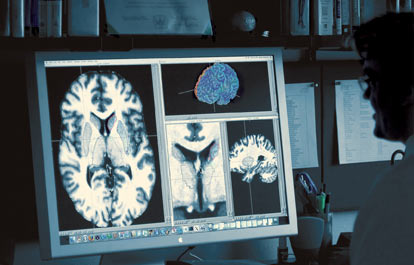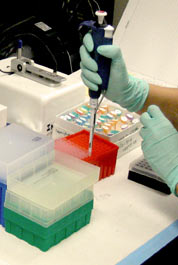

Scientific Lectures //
Error- and Reward-Related Brain Activity: Biomarkers for Anxiety and Depression
Greg Hajcak, Ph.D.- Professor/Director, Center for Affective Neuroscience of Depression and Anxiety; Department of Psychology, Stony Brook University
Presented: April 14, 2016
ABSTRACT: This talk is about event-related potentials (ERPs) as biomarkers of anxiety and depression, in the context of development and risk for these disorders. The first part of the talk will focus on error-related brain activity—linking the error-related negativity (ERN) to threat sensitivity and individual differences in anxiety. Anxiety, but not comorbid anxiety/depression, is characterized by an increased ERN—and this relationship emerges early in development and appears insensitive to state levels of anxiety. In addition to genetic mechanisms, I’ll describe learning-related differences may underlie the association between ERN and anxiety. The second half of the talk will focus on reward-related brain activity—linking the reward positivity (RewP) to reward sensitivity and individual differences in depression. A larger RewP relates to self-reported reward responsiveness, behavioral measures of reward sensitivity, and increased activity in reward-related neural circuits measured using fMRI. In both normative and clinical samples, depression and risk for depression is characterized by a smaller RewP—a relationship that also emerges early in development. Overall, the ERN and FN index neural systems that respond to threat and reward, and relate to risk for anxiety and depression, respectively.

